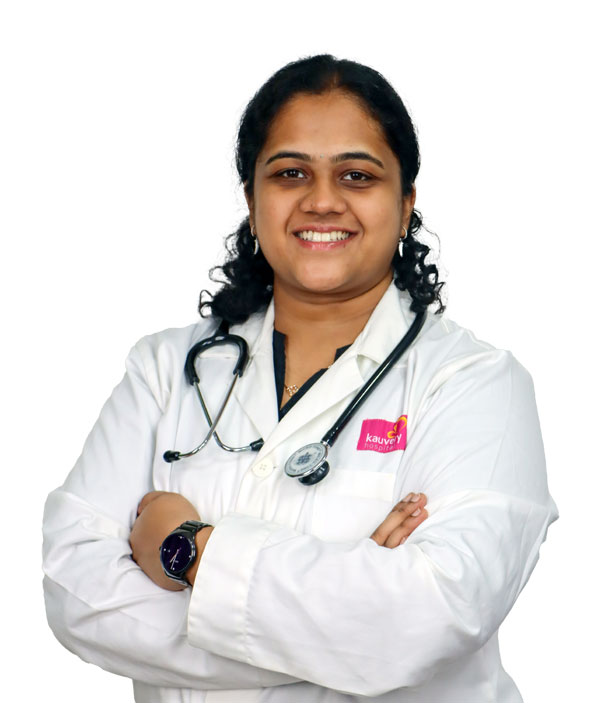On an average, at least 1 in 4 patients who come to the Breast Clinic have a relative who has been diagnosed with some form of cancer. With an increasing awareness as well as anxiety about cancer, the most commonly asked question is “What is my risk of getting cancer?” Subsequent concerns arise about the risk in their children and other family members.
Broadly, for the purpose of understanding, we can identify breast cancers as sporadic, hereditary and familial.

Sporadic Breast Cancer
This is the most common form, where the genetic changes in the cells are not passed down by the parents, but occur after birth. This occurs due to a combination of environmental, lifestyle and medical factors, and may also occur just by chance. Patients with these cancers do not pass their mutated gene to the next generation.
‘Familial’ and ‘Hereditary’ Cancers
These terms are interchangeably used sometimes, but they are two different concepts. Hereditary refers to cancers caused by a known/identifiable genetic cause.
Familial refers to cancers which appear to have a possible genetic component, affecting more family members than would be expected by chance alone. However, a single identifiable genetic cause is not known.
Hereditary Breast Cancer
Only about 5-10% of breast cancers are hereditary, which means that they result from gene changes passed from one or both parents. Hereditary breast cancer is most commonly caused by mutations in the BRCA 1 and BRCA 2 genes. Many of us would be aware of the Hollywood actress, Angelina Jolie who had inherited the BRCA mutation and hence underwent surgical removal of both her breasts as a form of preventing breast cancer.
People who have been identified with these genes can pass on these genes to their children. However, it is important to remember that the children are inheriting the risk, but not the disease itself. Not all people who inherit the risk will develop cancer, though the risk is high.,/
How to Identify If I Have a High-Risk Gene?
Different types of genetic testing methods are available. A simple blood test is enough for testing. A dedicated genetic counsellor would help with the following:
- Pre-test counselling done prior to ordering of tests
- Consideration of the most appropriate tests to order
- Post-test counselling done when results are disclosed
Who Should Get Tested?
- Personal history of breast cancer especially before the age of 50.
- An immediate female family member like mother, sister or girl child diagnosed with breast cancer when they were less than 40 years of age.
- An immediate male family member like father, brother or son diagnosed with breast cancer (age does not matter).
- An immediate family member diagnosed with cancer in both breasts with the first diagnosis being made at an age lesser than 50 years.
- Two immediate family members, or one immediate member and one second-degree relative (like aunt, nephew, grandparents, grandchildren, etc.) diagnosed with cancer (age does not matter).
- One immediate family member or second-degree relative diagnosed with breast cancer and one immediate family member or second-degree relative diagnosed with ovarian cancer (age does not matter but one of those should be an immediate family member).
- Three immediate family members or second-degree relatives diagnosed with breast cancer (age does not matter).
If you have one immediate family member or one second-degree relative diagnosed with breast cancer when they were more than 40 years and one of the following:
- Both breasts had cancer
- The breast cancer diagnosis was in a man
- Ovarian cancer
- A relative lesser than 45 years of age afflicted with sarcoma
- Glioma diagnosis or childhood adrenal cancer diagnosis
- Complex patterns of many cancers in a young person
What Are the Options If Identified with High-Risk Gene?
-
Enhanced Screening
Women can start breast cancer screening at younger ages, with more frequency, using mammograms/MRIs as advised by the doctor.
-
Risk Reducing Surgery
Surgery can be offered to remove both the breasts and/or remove the woman’s ovaries.
-
Chemoprevention
Use of medications to reduce the risk of cancer with drugs like tamoxifen.
“Knowledge is power.” However, in this era of tremendous amount of information available everywhere, “Correct knowledge is power.” You can ask your doctor about the various available options, with their risks and benefits.

Dr. Keerthi .K
Associate Consultant – Breast Surgery
Kauvery Hospital Chennai

